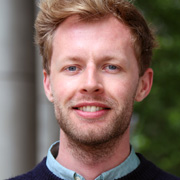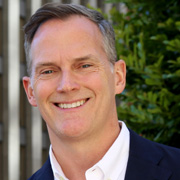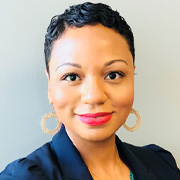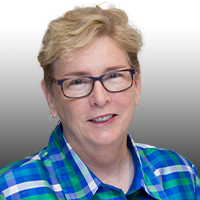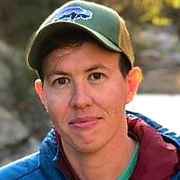Pride Month Roundtable with our LGBTQ+ Colleagues and Allies
As the daughter of Chinese immigrants, I remember facing prejudice while growing up in the Central Valley of California. These memories, paired with more recent experiences, have instilled in me the importance of allyship.
As an ally for equality and inclusion, I feel one of the most important actions I can take is to learn from the experiences of different communities and cultures. In this spirit, I want to share some insights from a recent discussion I had with some of my LGBTQ+ colleagues and allies. The following colleagues shared their voices:
How have you felt visible and celebrated by your colleagues or clients as an LGBTQ+ professional?
Chris: Colleagues supported me both formally and informally when coming out, by sharing words of support, committing to make sure I had the resources I needed, and by attending training on the proper use of pronouns. Colleagues and clients alike celebrated my LGBTQ+ visibility through words and actions. It opened the door for me to fully be myself and be even more effective in my roles at AECOM.
Wendy: While I have been part of organizations where I felt that being LGBTQ+ was only tolerated, AECOM celebrates the LGBTQ+ community. When Marriage Equality passed five years ago, our CEO Mike Burke immediately congratulated and celebrated with our LGBTQ+ staff. When you are free to come out of the shadows and be your true and whole self, your potential is limitless.
What LGBTQ+ professional organizations or internal AECOM groups are you involved with and what have you found are the benefits of being involved in this organization?
Stephen: I am an avid supporter of AIDS Lifecycle (ALC) and have ridden in four rides raising over $65,000, with amazing support from AECOM colleagues. This collaboration with ALC inspired me to sponsor a workshop at my high school in Pennsylvania in which the campus LGBTQ+ group collaborated with the athletic department. This project was very personal for me. When I was a high school varsity athlete, I knew I was gay but felt the pressure of social norms to hide part of myself in the closet and leave part of my potential on the sidelines.
Cristian: I am an active member of AECOM’s San Francisco Inclusion & Diversity (I&D) Committee and participate in the national I&D group. By being involved, I amplify my voice and the voices of those who feel less able to speak out. I have been fortunate enough to meet, talk with, and learn from incredibly inspiring individuals who remind me how important it is to look beyond our communities and support each other.
What are lessons learned that we can draw upon from the LBGTQ+ movement?
Stephen: My generation of the LGBTQ+ movement stands on the shoulders of those who came before us to fight for the right to be out. The great freedom I’ve been granted to pursue my career and personal life without prejudice requires I work hard to be a visible symbol showing that any LGBTQ+ professional can achieve his, her, or their goals.
Cristian: Key turning points of the LGBTQ+ movement, such as the riots at Compton’s Cafeteria and Stonewall Inn, saw disproportionate representation by trans people and people of color. Because of these members of our community, many of us have the freedoms we do today. We must stand with others who face discrimination and against violence toward them.
Chris: We have made a lot of progress worth celebrating and there is still more work to do. Black voices need further amplification within the LGBTQ+ community. Visibility of our trans and nonbinary fellows are also especially key. The efforts toward equality did not end with Marriage Equality, which mostly centered and benefitted white cisgender people. The movement will always need the help of allies who listen, follow the lead of LGBTQ+ people, and use strength in cooperation with us to effect positive change.
Marissa: There is beauty in the LGBTQ+ community, being a vast one and filled with overlapping and distinct issues and opportunities. It is represented by a series of letters, acknowledging the differences of the community at large. There’s now a + symbol, signifying inclusivity. Furthermore, characteristics such as race, generation, nationality, profession, etc. each subtly impact the person’s lived experience. As allies, it’s essential to recognize unique points of view and be aware that gender identities and expressions partially inform these points of view. We must also own our growth and education. As Chris rightfully calls out, it’s not up to our LGBTQ+ teammates to expend the mental and emotional energy to teach us when there are resources available. Our conversations will be much more fruitful if they don’t have to explain the basics first.







